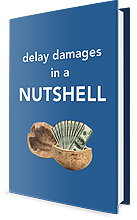The Most Important Question Owners Need to Ask When They Receive a Claim
Too often I hear this reason given for why there’s a claim on the project:
“Contractors low ball their bids hoping to make money on changes.”
I’m not going to tell you that that doesn’t happen. But I’m also not going to suggest to you that because they’ve done this, their claim has no merit.
The contractor’s position could have merit, even though they low balled their bid with the idea they were going to make money on changes. So, the merits of the claim may be completely independent of the circumstances.
There’s also a belief, and this is probably another common owner view of the world, that if I take a hard line on this claim, I’ll discourage other people from filing claims. Perhaps you may, but often I’ll hear this from an owner that’s used that philosophy as a basis for determining whether or not they’re going to fight the claim or not.
In both these cases, the wrong question is being asked.
The more important question is, “Does the claim have merit or not?” In other words, merit matters.
Sometimes there’s a belief, mostly expressed by contractors, that owners will always find a reason not to pay a change. I often hear this mentioned when we talk about developers.
I think it’s probably incorrect, but the bottom line is there’s a perception that some owners will always respond to the question of whether there’s a change or not with the word, “No.”
Again, even if that’s your perception, and even if that is the owner’s position, the issue really is the merits of the dispute. In other words, was there really a change made or not?
And finally, there’s also sometimes a belief out there that the designer will always act to protect his or her design. In other words, if the contractor alleges an error in the design, the designer will always conclude, “no, no error, not a problem.” Or it’s a concealed condition. Or it’s a differing site condition. Or it’s something else.
Again, my experience is that even if this is true, that doesn’t tell you much about the merits of the claim, and it’s the merits, ultimately, that will form the foundation of the resolution.
If you know an owner who gets claims from contractors, send them a link to this article.
Scott Lowe is a Principal of TRAUNER and is an expert in the areas of critical path method scheduling, construction claim preparation and evaluation, and specification writing. He can be reached at scott.lowe@traunerconsulting.com.
If you liked this article, be sure to sign up on the left side of our website to receive our Ideas & Insights in your email. Be sure to check your email after signing up!

